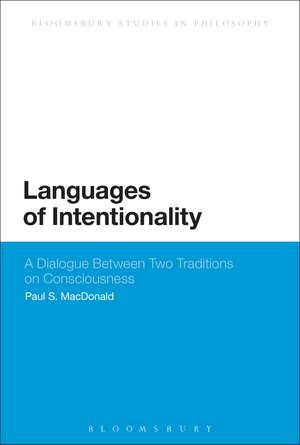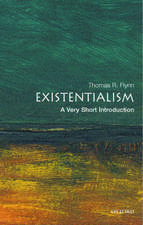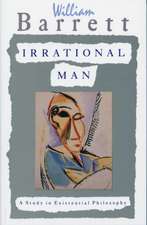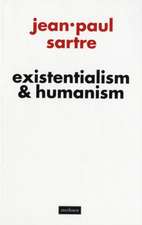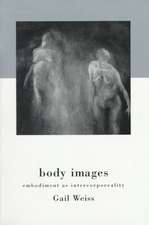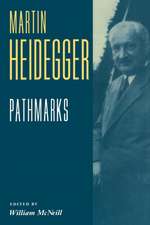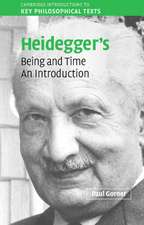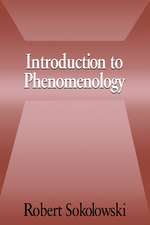Languages of Intentionality: A Dialogue Between Two Traditions on Consciousness: Bloomsbury Studies in Philosophy
Autor Professor Paul S. MacDonalden Limba Engleză Paperback – 15 ian 2014
| Toate formatele și edițiile | Preț | Express |
|---|---|---|
| Paperback (1) | 237.28 lei 6-8 săpt. | |
| Bloomsbury Publishing – 15 ian 2014 | 237.28 lei 6-8 săpt. | |
| Hardback (1) | 890.28 lei 6-8 săpt. | |
| Bloomsbury Publishing – 27 iun 2012 | 890.28 lei 6-8 săpt. |
Din seria Bloomsbury Studies in Philosophy
- 13%
 Preț: 257.50 lei
Preț: 257.50 lei - 13%
 Preț: 256.77 lei
Preț: 256.77 lei - 22%
 Preț: 256.20 lei
Preț: 256.20 lei - 22%
 Preț: 257.03 lei
Preț: 257.03 lei - 13%
 Preț: 255.47 lei
Preț: 255.47 lei - 22%
 Preț: 237.28 lei
Preț: 237.28 lei - 22%
 Preț: 257.50 lei
Preț: 257.50 lei - 22%
 Preț: 773.81 lei
Preț: 773.81 lei - 13%
 Preț: 256.20 lei
Preț: 256.20 lei - 22%
 Preț: 258.89 lei
Preț: 258.89 lei - 13%
 Preț: 255.11 lei
Preț: 255.11 lei -
 Preț: 256.20 lei
Preț: 256.20 lei - 22%
 Preț: 772.58 lei
Preț: 772.58 lei - 22%
 Preț: 240.50 lei
Preț: 240.50 lei - 22%
 Preț: 257.03 lei
Preț: 257.03 lei - 23%
 Preț: 255.84 lei
Preț: 255.84 lei - 23%
 Preț: 255.29 lei
Preț: 255.29 lei - 13%
 Preț: 235.00 lei
Preț: 235.00 lei -
 Preț: 258.42 lei
Preț: 258.42 lei -
 Preț: 256.49 lei
Preț: 256.49 lei - 14%
 Preț: 773.06 lei
Preț: 773.06 lei - 30%
 Preț: 774.03 lei
Preț: 774.03 lei - 30%
 Preț: 774.20 lei
Preț: 774.20 lei - 30%
 Preț: 774.86 lei
Preț: 774.86 lei
Preț: 237.28 lei
Preț vechi: 272.54 lei
-13% Nou
Puncte Express: 356
Preț estimativ în valută:
45.41€ • 49.02$ • 38.08£
45.41€ • 49.02$ • 38.08£
Carte tipărită la comandă
Livrare economică 19 aprilie-03 mai
Preluare comenzi: 021 569.72.76
Specificații
ISBN-13: 9781472529602
ISBN-10: 147252960X
Pagini: 240
Dimensiuni: 156 x 234 x 13 mm
Greutate: 0.34 kg
Editura: Bloomsbury Publishing
Colecția Bloomsbury Academic
Seria Bloomsbury Studies in Philosophy
Locul publicării:London, United Kingdom
ISBN-10: 147252960X
Pagini: 240
Dimensiuni: 156 x 234 x 13 mm
Greutate: 0.34 kg
Editura: Bloomsbury Publishing
Colecția Bloomsbury Academic
Seria Bloomsbury Studies in Philosophy
Locul publicării:London, United Kingdom
Caracteristici
Traces the history of ideas of intentionality and the latest insights from neuroscience and computer-modelling.
Notă biografică
Paul S. MacDonald is Senior Lecturer in Philosophy at Murdoch University, Australia. He is the author of Descartes and Husserl (SUNY Press, 2000), History of the Concept of Mind (Ashgate, vol.1, 2003; vol. 2, 2006), and the editor of The Existentialist Reader (Routledge, 2001).
Cuprins
1. CurrentIssues and Debates on Intentionality \ 2. Beginnings of the Phenomenological Theory\ 3. Existentialist Critiques of Husserl's Theory \ 4. Language-Analytic Accountsand the New Empiricism \ 5. Computer Models and Functionalist Explanations \ 6.Criticisms of the Analytic-Empirical Approach \ 7. Extensions of the PhenomenologicalTheory \ 8. A Hybrid Project - the Best of Both Approaches \ Notes \Bibliography \ Index
Recenzii
'Paul S. MacDonald has written a beautifully clear, deeply well-informed, and up-to-date critical history of the puzzling but immensely important notion of intentionality. He seamlessly integrates discussion of phenomenological and analytical approaches to the topic, demonstrating their many points of contact. This book will not only be extremely useful to students of philosophy and their teachers as a core text on the subject, but also makes illuminating reading for professional philosophers.'
'Philosophical analyses of the problems of consciousness, as well as accounts of what the problems are, remains divided between the approaches one finds in analytic-empirical as opposed to continental philosophy.Knowledgeable yet accessible, lively, opinionated and well-argued--those on either side of the divide will find this book useful not only to better understanding the other's positions, but possibly their own as well. More than that, this book is filled with substantive insights that constitute a positive, refreshing, and readable contribution to the study of consciousness.'
'Philosophical analyses of the problems of consciousness, as well as accounts of what the problems are, remains divided between the approaches one finds in analytic-empirical as opposed to continental philosophy.Knowledgeable yet accessible, lively, opinionated and well-argued--those on either side of the divide will find this book useful not only to better understanding the other's positions, but possibly their own as well. More than that, this book is filled with substantive insights that constitute a positive, refreshing, and readable contribution to the study of consciousness.'
